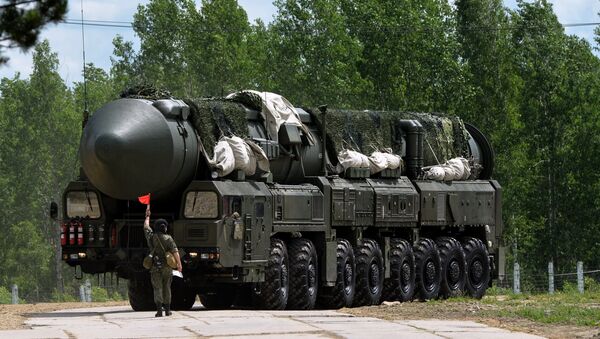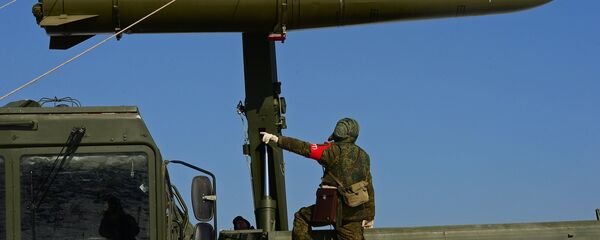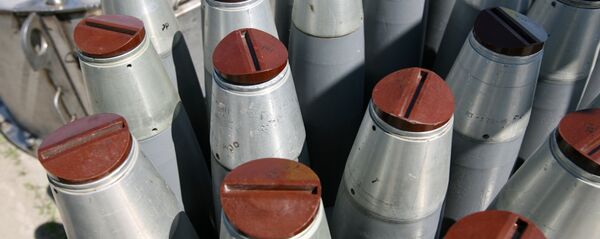Instead of reinforcing its military presence in Europe, the US and NATO should engage in dialogue with Russia, Jerry Sommer of the Bonn International Center for Conversion (BICC), a peace and conflict research center, told Sputnik Deutschland.
"I don't see anybody threatening the NATO states. I see a need to discuss disagreements between Russia and NATO, and Germany as well, and to solve them through honest negotiation. However, the main reaction of our government, or the governments of NATO countries as a whole, is to encourage higher defense spending, aimed against Russia," Sommer said.
"Some have even gone so far as to demand that European NATO members should have their own nuclear weapons. This is completely counter-productive and only increases the danger of escalation."
An Aegis Ashore ballistic missile defense system was activated in Romania last May and the US is constructing a second system in Poland.
Sommer said that the expansion of NATO military capacity in Europe is not a priority for the Trump administration and its suspension could become a turning point that ushers in more cooperation with Russia.
"The anti-missile defense system in Poland is not particularly important for Trump because it is not intended to protect the USA. For Trump and the Republican establishment, the anti-missile defense of US territory is much more important. If the European NATO countries were to argue for the suspension or end of this program, this would open up the possibility of further arms control agreements with Russia."
Commenting on Donald Trump's first 100 days in power, Sommer said that the US bombing of a Syrian airbase on April 7 is a worrying sign that the President will continue to pursue an interventionist US foreign policy in spite of his pre-election promises.
"This a pattern which the US has followed for decades – if they think there is a danger they bomb it, like they did a pharmaceutical factory in Khartoum (Sudan) in 1998 because they thought al-Qaeda was using it. This is something Obama and Hillary Clinton had been discussing doing for many years, and now Trump decided to do it."
"I am really not sure how serious these hopes (for a non-interventionist foreign policy) were for him. It can't be said conclusively whether, for example, he will improve the relationship with Russia during his term in office. The prospects have also deteriorated because it's not possible to see a desire on his part to restrict armaments. For example, he doesn't want to extend the New START agreement."
"It would certainly be a good thing if Russia also actively encouraged and proposed an armament control deal for Europe, as well as for nuclear weapons, which might improve the prospects (for non-proliferation)," Sommer said.
In February, Trump told Reuters that New START is a "bad deal," raising the issue of whether the US President will seek to renegotiate the agreement.
On Tuesday, the director of the Russian Foreign Ministry's Department for Non-Proliferation and Arms Control, Mikhail Ulyanov, said that Russia is continuing to implement the 2010 START treaty as scheduled.
"Despite the fact that international climate could be more favorable, Russia continues to take specific measures to reduce its nuclear arsenal," Ulyanov told the Preparatory Committee for the 2020 Review Conference of the Parties to the Treaty on the Non-Proliferation of Nuclear Weapons.
"We intend to reach the agreed levels by February 5, 2018. This brings us to the point where all states with nuclear military capabilities must join the disarmament process," Ulyanov said.






